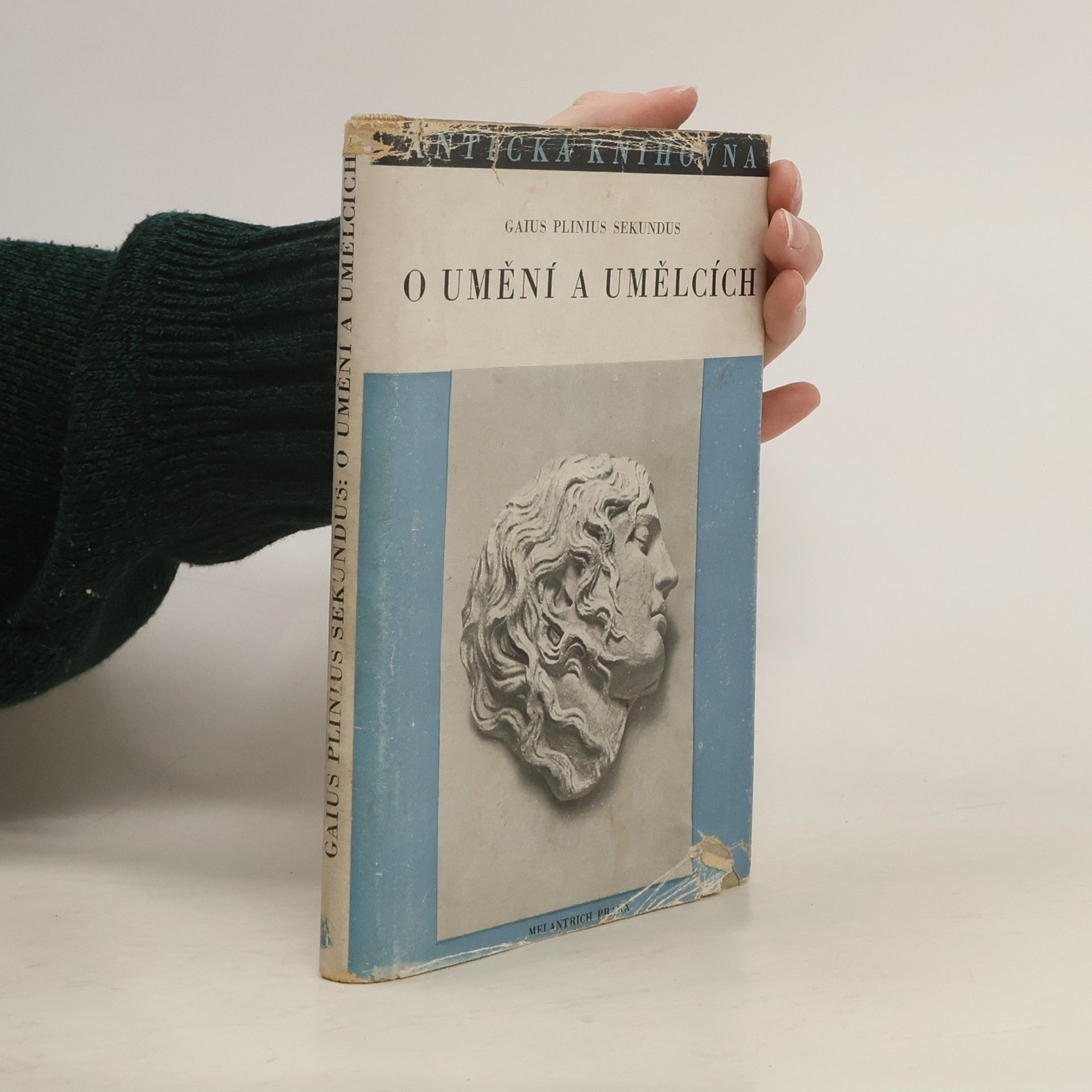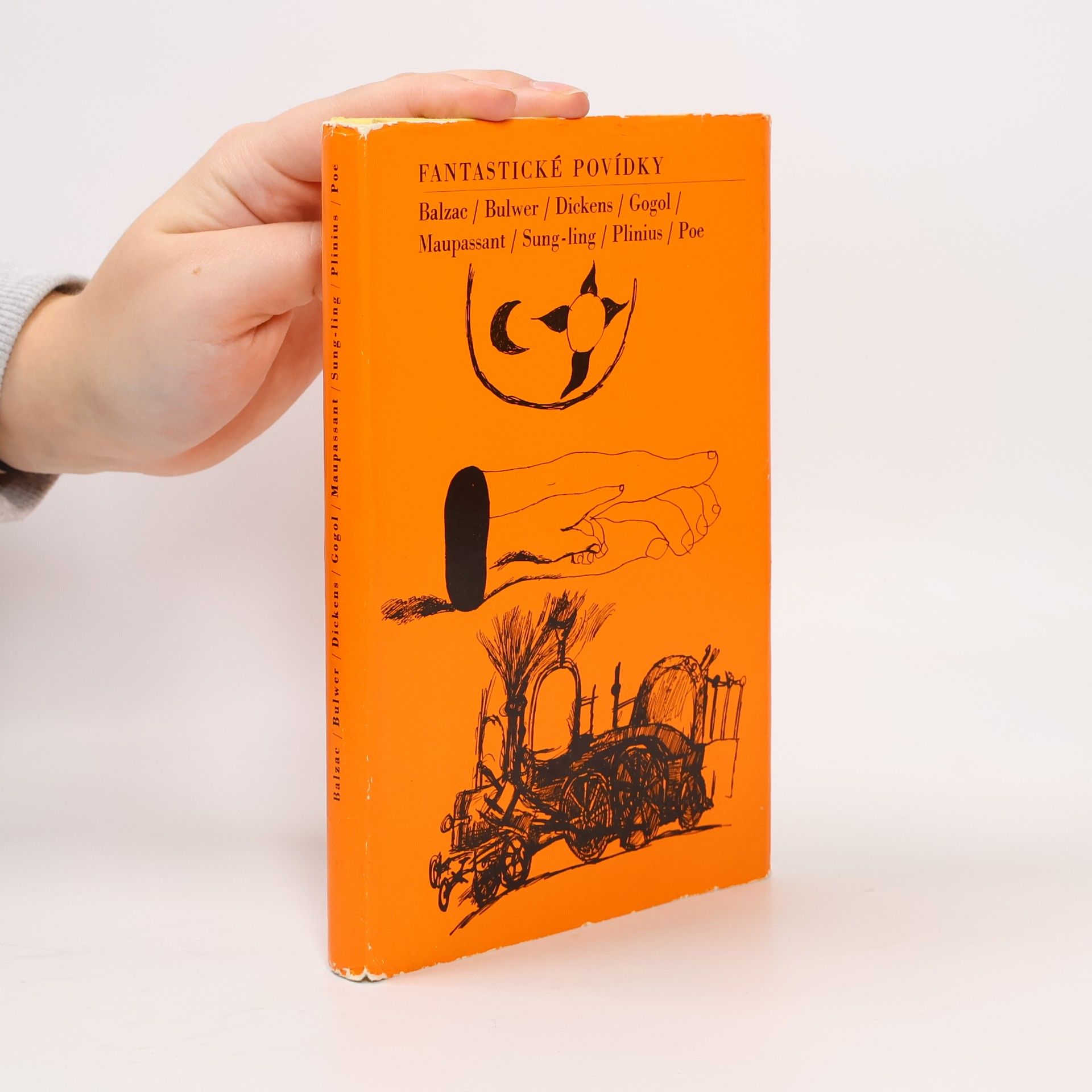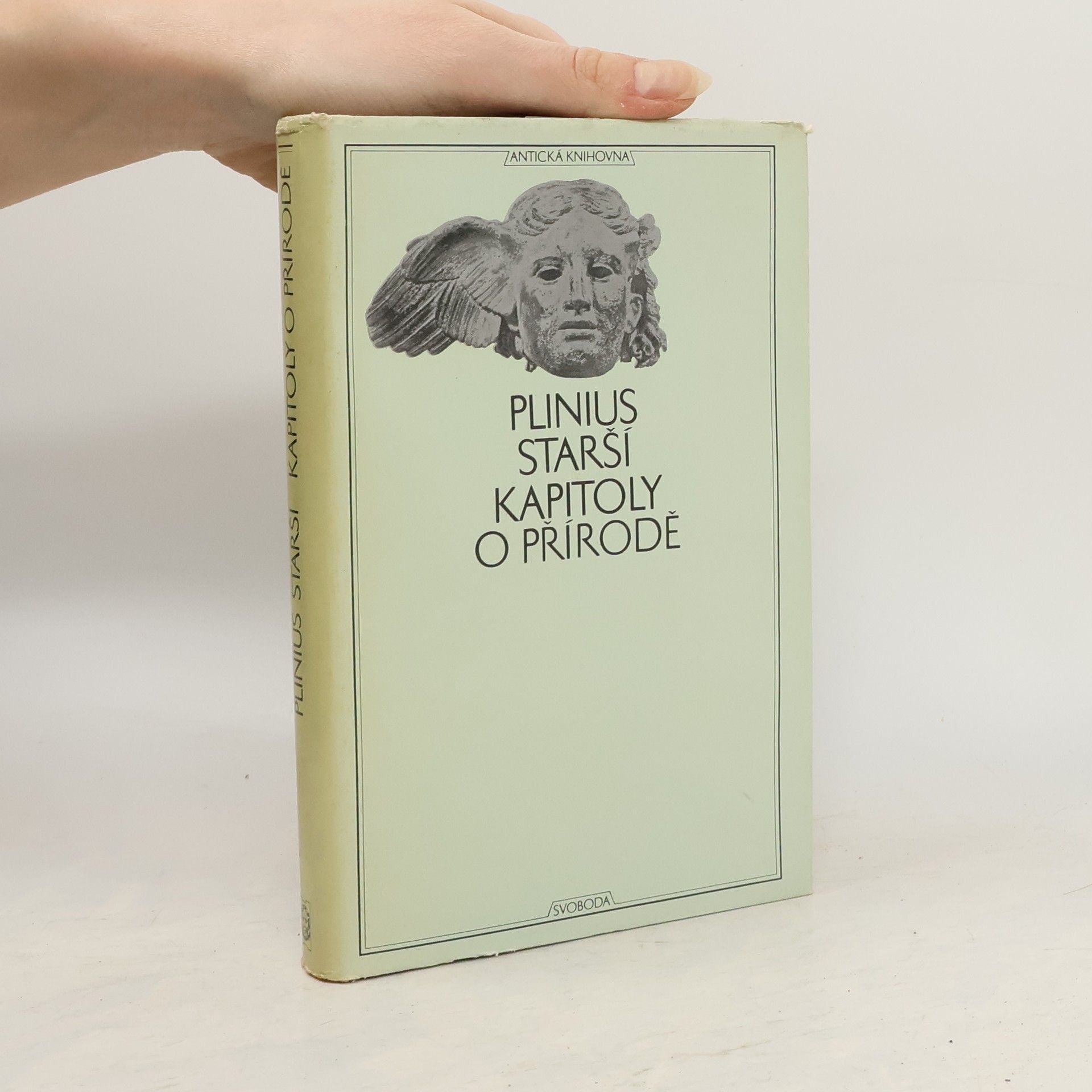Kniha římského polyhistorika Plinia Staršího Naturalis historia je rozsáhlým encyklopedickým dílem: zahrnuje anthropologii, živočichopis a rostlinopis, nauku o lécích a lékařství a nerostopis. K tomu je připojen výklad o různých oborech výtvarného umění. Zejména poslední kapitoly, jednající o starověkém umění, jsou kulturně velmi cenné, protože jsou bohatým zdrojem zpráv o starověké umělecké technice a o nesčetných uměleckých dílech, z nichž převážná většina je navždy ztracena.
Gaius Plinius Secundus Knihy
- Plinius Starší







Dopisy
Sešit 6/7
Dopisy
Sešit 8/10
Dopisy
Sešit 3
Dopisy
Sešit 2
Natural History - An Illustrated Selection
- 474 stránek
- 17 hodin čtení
Pliny the Elder, a first-century Roman writer, is renowned for his comprehensive work, Naturalis Historiæ (Natural History), which remains the only fully preserved text from his oeuvre. This extensive compilation covers a wide range of topics, including astronomy, geography, botany, and zoology, reflecting the breadth of knowledge and curiosity of his time. Pliny's meticulous observations and insights provide a valuable glimpse into ancient Roman thought and the natural world, making it a significant historical and scientific resource.
Pliny the Elder (23 79 CE) produced in his Natural History a vast compendium of Roman knowledge. Topics included are the mathematics and metrology of the universe; world geography and ethnography; human anthropology and physiology; zoology; botany, agriculture, and horticulture; medicine; minerals, fine arts, and gemstones.



